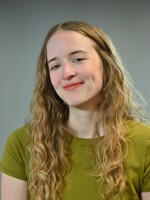Kansas City is becoming more welcoming for black women who want to start their own businesses.
Adrienne Haynes, the managing partner at the business law firm SEED Law, says there’s more diversity in the entrepreneurial community today than in 2015, when she created the Multicultural Business Coalition with a few other organizations. Half of her clients are black women.
“It requires a tremendous amount of energy ... to develop your own social capital,” she says. “It underscores the amount of grit and determination that black women have had in growing their businesses.”
Haynes’ first experience with business was when she was in 8th grade, watching her mom sell Mary Kay cosmetics. Years later, she worked at a health food store that also had an ice cream shop. She was impressed by the owner's strategy in pairing the two businesses together.
That's when she started noticing the differences between entrepreneurs who were able to grow their businesses, and those who just had a side hustle.
“I was very intrigued,” says Haynes. “It was really then that I said, ‘Oh, entrepreneurship is a thing.’”
At the time, though, she didn’t see many people who looked like her in the entrepreneurial community. By the time she was ready to graduate from law school, she forced herself to meet with a different attorney every week just to build her own network.
Haynes' struggles got national attention in 2018 when Dell Gines, senior community development advisor at the Federal Reserve Bank of Kansas City, published a report analyzing an unprecedented surge of black women owned businesses in spite of the challenges they face.
In the decade between 2002 and 2012, Gines had learned, the number of businesses owned by black women in America increased by 179%. That was an enormous increase, especially compared with the 52% growth for all women-owned businesses and a 20% increase for all businesses.
Black women were the only group of women in America with a higher share of business ownership than their male counterparts.
Gines was seeing a similar trend for Latino women, and wanted to know what was behind the phenomenon.
“It’s a huge blind spot,” he says. “Nobody's paying attention to how we can better support them.”
To understand what drove these entrepreneurs, he set up focus groups with 34 black women in the region served by the Kansas City Fed — in Kansas City, Omaha, Wichita, Oklahoma City and Denver.
“What we wanted to do was really get behind the numbers,” said Gines. “One of the things that really struck me… was this significant sense of resiliency and grit.”
His final report identified black women business owners as determined self-learners who were highly motivated, which made sense to him considering the deficit of financial and community support they faced in so many areas.

Gines was surprised when his focus groups told him that money wasn’t their biggest challenge — even though that’s what most entrepreneurs say when he asks.
“What they said was there was a lack of knowledge of how to operate and start and run a business prior to when they launched," he says. "To me, that’s an easily correctable situation by just having more intentionally designed programs and activities that are targeting diverse populations. It’s telling us that we don’t have what we would call an ecosystem or community that’s situated around black women.”

Social capital also plays a big role. If a group of people is used to doing deals on the golf course and you’re never invited to the golf course, then you lose.
“For me, it would be street basketball, and I don’t see too many deals happening there,” said Gines. “If you don't have access to those networks, then you can't get the information… and that’s true for a lot of minorities in America.”
Given all of the challenges for African Americans and women in business, Gines says, the rapid growth rate he discovered a few years ago was nothing short of astonishing. He says he wonders, though, what could happen if these same tenacious business owners had a better environment, one with more education, training and community and economic support.
That’s where organizations such as the Multicultural Business Coalition in Kansas City can make an impact. Haynes' organization is set to host more than 50 workshops for local entrepreneurs at its second MBC Tour Week, May 18-23, at Penn Valley Education Center.
“Our coalition is our way of linking arms and trying to really support all diverse entrepreneurship activity in Kansas City,” Haynes says.
She also encourages clients at her law office to bring their kids to meetings.
“I want their kids to see entrepreneurship in action," she says. "Because if you haven’t seen it in your lived experiences, you may not realize that it’s possible.”
Highlights of Dell Gines' research are on view at the Federal Reserve Bank of Kansas City, where the exhibit "No Turning Back: The Growth of Black Women Entrepreneurs" is up until May 1.
Adrienne Haynes and Dell Gines spoke with KCUR on a recent episode of Central Standard. You can listen to their entire conversation here.
Mackenzie Martin is an associate producer for KCUR's Central Standard. Reach out to her at mackenzie@kcur.org or on Twitter @_macmartin.



